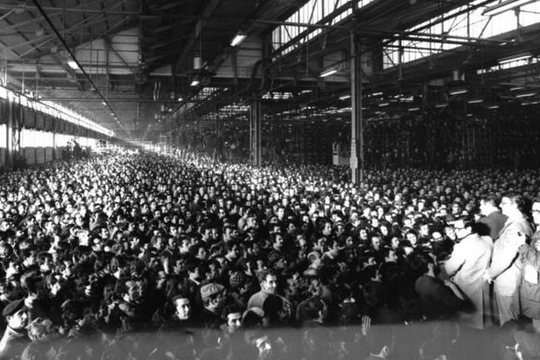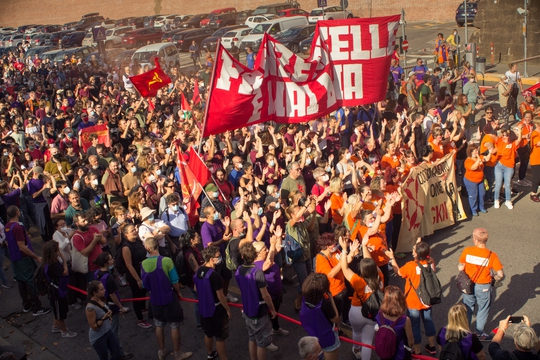Co-research and Workers’ Control

theory
Co-research and Workers’ Control
by
Raniero Panzieri
/
Sept. 7, 2022
Translated by Pietro Fioretta and Matthew.
Preface** **
In this short, originally unpublished, essay, Panzieri begins to set out his understanding of ‘co-research’ in relation to workers’ control1 as a working-class political strategy. Within the text, he starts by presenting his understanding of workers’ control from a revolutionary perspective, before beginning to lay out how co-research and workers’ control act in tandem. Unfortunately, this essay ends quite abruptly - it is unclear whether or not this is because Panzieri passed away before it could be completed.
A: Control and preparation for situations of dual power.
To arrive at global political conquest, the conquest of the State, it is necessary to pass through situations of “dual power”. It is in relation to this prospect that the demand of control takes on concrete meaning, as a bridge between the expression of new modes of struggle, as an explication of the content of new demands, and the initiation of a general revolutionary crisis.
The demand for control introduces as of now – from the moment of the manifestation of the workers’ struggle at the levels of present-day capitalism – the prospect of the general social and political character of these struggles. It “guarantees” against the demand’s degradation and from the reabsorption of the “new” into the mechanism of capitalist development, etc. It is – precisely – a guarantee against “corporatist” degradation.
B: Therefore, the subject of control is born from the current real conditions – new relations between demands and the production process, new organisational articulations, etc. – together with the need to not dissipate the ongoing revolutionary capacity.
Undoubtedly, the line of control is here taken as a factor in accelerating times of struggle, as a tool for revolutionary ruptures in the immediate future [di tempi ravvicinati]. (Control as a form of struggle, not as a surrogate for the conquest of political power etc.; that is as a phase of maximum pressure on capitalist power, of maximum threat, etc.).
C: Co-research and workers’ control are in reciprocal function. If co-research expresses on the part of workers conscious acquisition of elements to counter the system, with the elaboration of a revolutionary project that gradually grows, changes, enriches and intensifies itself, control then expresses the organic, non-reducible character of the demand of workers’ control.
The aspect of self-decision, of self-elaboration, of self-organisation inherent in co-research should not be seen as a “fragmentation” of the process of revolutionary class formation, as a “compression” of its tasks, of its revolutionary project, to the here-and-now [hic et nunc] of the given situation of the factory. This interpretation is a kind of “mystical” deformation, of clear sociological origin, of that autonomy full of decision-making and organisation of struggle.
This translation was produced using an undated copy included in the collection of Panzieri’s writing titled ‘Spontaneità e organizzazione: gli anni del “Quaderni rossi,” 1959-1964’.2
-
Panzieri’s influential essay ‘Seven Theses on Workers’ Control’ opened up an exciting debate on the Italian left after it was originally published in 1958. Workers’ control would remain an important theme throughout his writing for the remainder of his, albeit short, life. ↩
-
Panzieri, R. 1994. Spontaneità e organizzazione: gli anni del “Quaderni rossi,” 1959-1964. Pisa: Biblioteca Franco Serantini. Pg. 129. ↩
author
Raniero Panzieri
Subscribe to Notes from Below
Subscribe now to Notes from Below, and get our print issues sent to your front door three times a year. For every subscriber, we’re also able to print a load of free copies to hand out in workplaces, neighbourhoods, prisons and picket lines. Can you subscribe now and support us in spreading Marxist ideas in the workplace?
Read next


